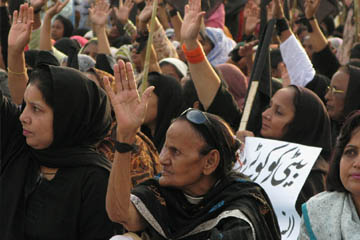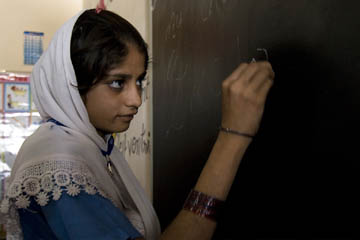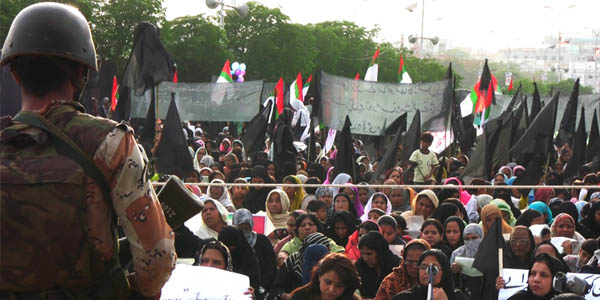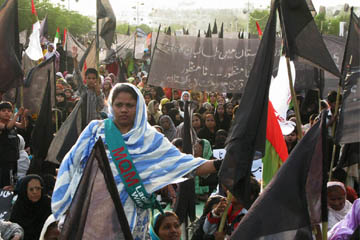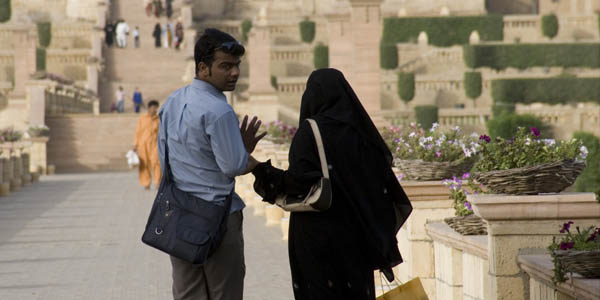
Photo: Alex Stonehill
In the gray light of my first morning in Pakistan, the thick salty smell of sulfur introducing me to the seaside city of Karachi, the streets were full of men.
With few exceptions it was men congregating in front of the still dark airport, men piled onto buses carnival decorated with Technicolor and chrome and men weaving through the thickening traffic on motor bikes and rickshaws.
